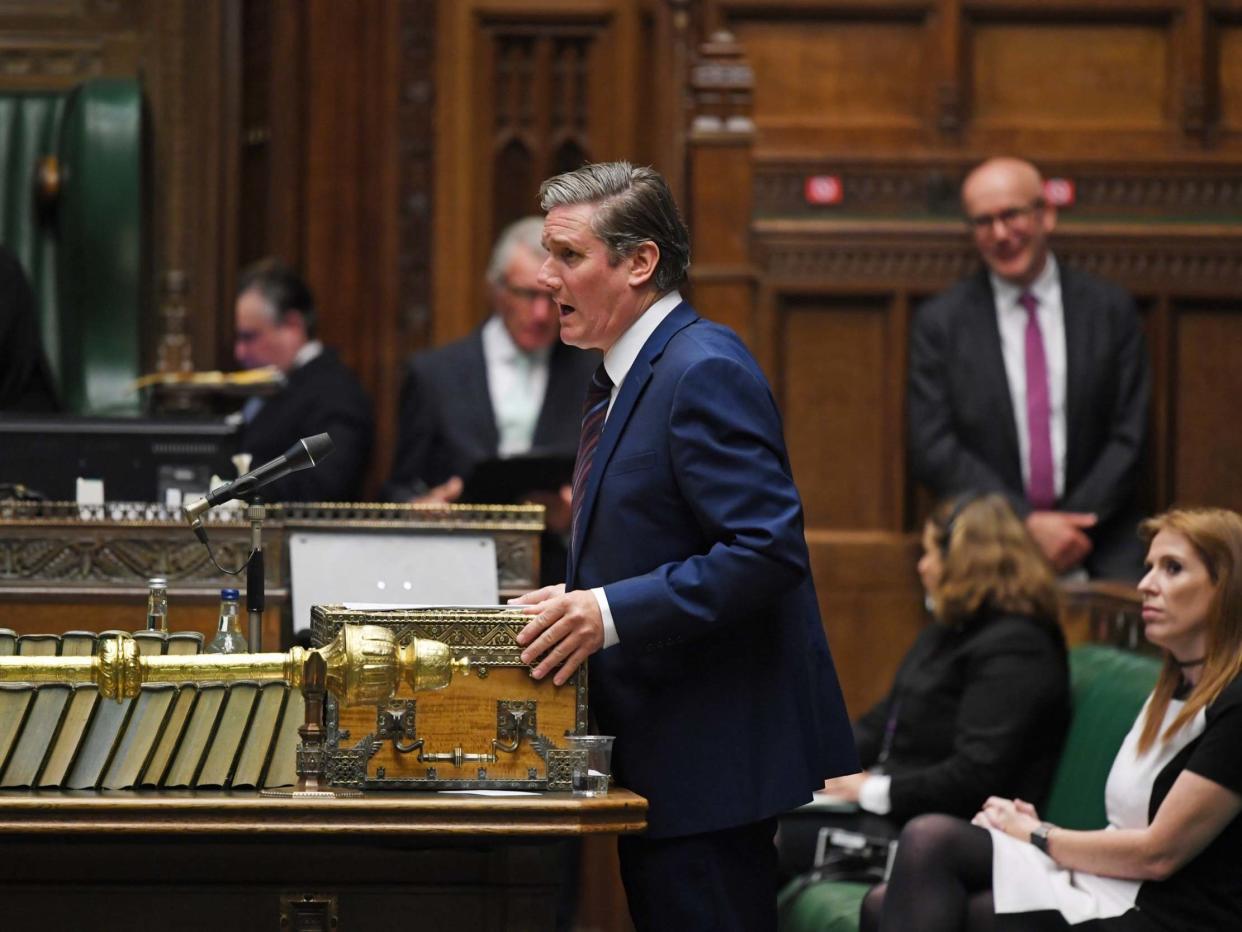Keir Starmer’s fortunes are not being enjoyed by the Labour Party in the polls

Although Keir Starmer is polling far better than Boris Johnson, his party’s numbers remain static. Starmer benefits from projection just like Jeremy Corbyn did early on: he’s anything people who support him want him to be and the opposite of the thing they’re running away from. But the Labour Party is caught up in yet another divisive internal election. Factional tensions have never been higher. On top of this, the EHRC report on institutional antisemitism in the Labour Party has been received by HQ and will either leak or be made public soon.
We have a reactive government, an inert opposition, divided left and united right. The Westminster government is constantly caught on the hop, trying to keep up with the devolved nations’ approach to Covid-19 and briefing new policy late at night after ministerial conflict in the media.
This should be a cinch to oppose. However, anything that might look a bit too lefty or bold is swerved by Starmer in his ship-steadying phase, and this just draws more ire from the left without persuading new Labour converts. It’s too much to call for universal basic income, the shadow chancellor wavers on a wealth tax and weeks of mask-wearing were left to Nicola Sturgeon instead of Labour’s front bench.
Criticism of Starmerism from within the shadow cabinet seems to have focused on the bad old days of briefing against Ed Miliband, with undertones of misogyny aimed at “nice” Anneliese Dodds. The taunts of the centre and right of the party during the Corbyn era are coming back to haunt them in the form of anti-Starmer memes and mockery: “Sir Keir, a serious leader would be 20 points ahead in the polls,” and so on.
The left inside and outside party politics are sad and angsty and falling out with each other, and that’s entirely rational in the circumstances. The dream of a non-Tory government is dead for years, thanks to the crushing Johnson majority. Activists who saw possibility in Corbynism to get beyond the usual limited expectations of social democracy lent it their critical support to try to get bigger wins on climate, anti-austerity actions and liberation politics. Many have since left electoral politics again. Black and trans party members feel let down by Starmer’s stumbles on Black Lives Matter and non-committal approach to LGBTQ+ rights – letting the right win the culture war via inertia.
Watch video below
Smaller parties and the rise of slickly-branded Rishi Sunak means voters do feel that they have “somewhere to go” if neither Starmerism nor Johnsonism appeal, though those options are fragmented. The Greens, meanwhile, battle with whether or not to deny they’re on the left. The Liberal Democrats fight over the legacy of the coalition and whether to court more Labour or Tory voters. Momentum has a much bigger membership than the Centre-Left Grassroots Alliance, but were unable to stop transphobic and antisemitic candidates from making it on to the “united left” slate for National Executive Committee elections or make convincing apologies.
Hoping the left will go away and enjoying their marginalisation is ignoring demographic shifts and the changes in thinking brought on by the pandemic and recession. Losing any part of the “broad church” is also making it less likely Labour can win – the votes will split, especially when the SNP are considered.
Starmer isn’t Blair: he lacks the charisma and boldness. He could, however, work harder to make ”Unity” more than a slogan and not just the name of the worst Mitford sister.
Read more
David Tennant: Labour ‘stronger’ under ‘clever grown-up’ Keir Starmer
Boris Johnson care homes comments are ‘shameful’, Keir Starmer says
If Jeremy Clarkson is a Labour voter, Keir Starmer is nailing it


